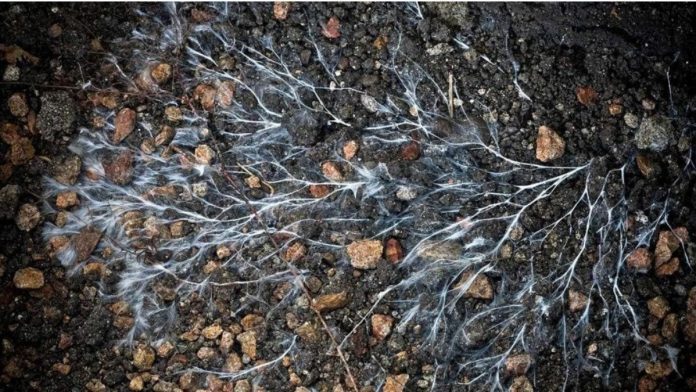News in brief:
–Â Swiss researchers have made a breakthrough in sustainable farming, demonstrating that mycorrhizal fungi can increase plant yields by up to 40% without using chemical fertilisers or pesticides.
– While the study offers a promising alternative to intensive farming practices, the researchers highlight the importance of considering existing soil conditions, with a predictive model developed to determine the effectiveness of fungal inoculation based on soil fungi indicators.
Researchers from Switzerland have made a significant breakthrough in sustainable agriculture by demonstrating the potential of mycorrhizal fungi to boost plant yields without relying on chemical fertilisers or pesticides.
In a large-scale field trial involving 800 plots across 54 maize farms, the study found that inoculating soil with these beneficial fungi resulted in yield increases of up to 40% in certain fields.
This finding could be a game-changer for farmers seeking to reduce their environmental impact and improve soil health. Current intensive farming practices often involve excessive use of fertilisers and pesticides, leading to soil degradation, biodiversity loss, health problems and environmental pollution.
Mycorrhizal fungi offer a natural and sustainable alternative to farming by forming symbiotic relationships with plant roots, enhancing nutrient uptake and promoting plant growth.
While the study yielded promising results, it also revealed important nuances. For example, while a quarter of the plots experienced significant yield increases, another third saw no improvement or even slight decreases. The researchers found that the success of fungal inoculation depended on the existing soil conditions, particularly the presence of fungal pathogens.
Stefanie Lutz, co-author of the study explains that on plots with high levels of fungal pathogens, the mycorrhizal fungi acted like a shield, protecting the plants and leading to substantial yield increases. Conversely, fields with minimal pathogen presence showed little benefit from fungal application.
The researchers developed a predictive model based on soil fungi indicators, enabling them to forecast with 90% accuracy whether fungal inoculation would be effective in a given field. This predictive capability is crucial for developing a reliable and targeted application strategy for this approach.
Co-lead of the study, Klaus Schlappi, said that by focusing on fields where the fungi will thrive, they can maximise the benefits of the technology and promote a more sustainable agricultural future.
While further research is needed on optimal application methods, this study paves the way for a new era of sustainable farming practices that benefit both farmers and the environment.



